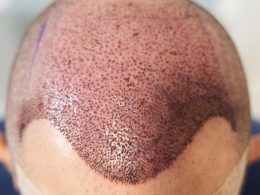Are you someone who loves to travel but always ends up feeling queasy and nauseous during the journey? If so, then you are not alone. Motion sickness is a common problem that affects many travelers. It can be caused by various factors such as movement, changes in altitude, or even reading while on a moving vehicle. But fear not! In this article, we will share with you 5 tips to prevent motion sickness and have smooth sailing throughout your travels. So sit back, relax, and read on to learn how to make motion sickness a thing of the past!
What is Motion Sickness?
Motion sickness, also known as travel sickness, is a common condition that affects many people when they are on the move. It is caused by a conflict between what your eyes see and what your inner ear senses. When you’re traveling by car, boat or plane, for example, your eyes tell you that you’re moving forward while your ears sense movement in different directions.
This conflicting information can cause dizziness, nausea, vomiting and other symptoms associated with motion sickness. Furthermore, it can be triggered by reading while in transit or watching videos on devices like phones or tablets.
The severity of motion sickness varies from person to person. Some may experience only mild discomfort while others may have severe reactions that prevent them from enjoying their journey altogether. Understanding the causes and symptoms of motion sickness can help prevent its occurrence during travels.
Causes of Motion Sickness
Motion sickness is a common phenomenon that affects many people during travel. Although the exact cause of motion sickness is not well understood, it is believed to be caused by a conflict between sensory inputs received by the brain.
One factor that contributes to motion sickness is when there are discrepancies between what you see and what your vestibular system senses. For example, if you’re on a boat and can’t see any fixed objects in the distance, but feel the movement of waves beneath you, this can lead to confusion for your brain.
Another reason for motion sickness could be due to a lack of ventilation or fresh air in enclosed spaces like cars or planes. This can cause feelings of nausea and dizziness as your body tries to adjust.
Additionally, individuals who experience anxiety or stress while traveling may also be more susceptible to motion sickness. Anxiety causes an increase in adrenaline levels which may affect balance and coordination leading to motionsickness symptoms.
Genetics play a role too – certain genetic factors have been shown to make some people more prone than others towards developing themotion-sicknessexperience.
Understanding these causes will help individuals take preventive measures againstmotion icknessduring future travels.
Symptoms of Motion Sickness
Symptoms of motion sickness can vary from person to person, but they typically include a combination of nausea, dizziness, and vomiting. Some people may also experience sweating or headaches.
The severity of symptoms can range from mild discomfort to severe illness that makes it impossible to travel. In some cases, motion sickness may even trigger anxiety or panic attacks.
One common sign of motion sickness is pale skin and cold sweats. This occurs when the body’s nervous system reacts to the movement by releasing more adrenaline than usual.
Other symptoms might include excessive yawning or feeling tired despite not having exerted any physical effort. Additionally, some people may experience a lack of appetite or difficulty concentrating due to the overwhelming sensations caused by motion sickness.
It’s important to recognize these symptoms early on so you can take steps to prevent them from worsening. By understanding what causes your motion sickness and taking appropriate measures before traveling, you can greatly reduce its impact on your journey.
Prevention of Motion Sickness
Prevention of Motion Sickness
Motion sickness can be a real buzzkill when you’re traveling, but luckily there are ways to prevent it. One simple prevention method is to avoid reading while in motion, as this can cause conflicting signals between the eyes and inner ear. Instead, focus on the horizon or a stationary object outside.
Another way to prevent motion sickness is through dietary changes. Eating light meals that are low in fat and high in carbohydrates may help reduce symptoms. Avoiding spicy or greasy foods before travel can also make a difference.
Keeping hydrated during travel is essential for preventing motion sickness. Drinking water or clear fluids like ginger ale can help keep nausea at bay.
It’s important to plan ahead when traveling by choosing seats that provide maximum stability, such as near the wings of an airplane or at the center of a boat.
Over-the-counter medications such as Dramamine® and Bonine® may provide relief from motion sickness symptoms if taken prior to travel. However, always speak with your doctor first before taking any medication.
By following these prevention tips, you’ll be able to enjoy smooth sailing during your travels without worrying about pesky motion sickness symptoms!
Treatment for Motion Sickness
Treatment for Motion Sickness
If you’re already starting to feel sick, there are some things you can do to ease your symptoms. Here are a few treatment options:
1. Medications: Over-the-counter medications such as Dramamine or Bonine can help reduce nausea and vomiting associated with motion sickness. However, these medications may cause drowsiness, so it’s important to take them well in advance of your trip.
2. Acupressure: Some people find relief from motion sickness by using acupressure bands that apply pressure on the wrist.
3. Ginger: This natural remedy has been used for centuries to treat nausea and vomiting, including those caused by motion sickness. You can try ginger candy or tea before and during your trip.
4. Fresh air: If possible, step outside onto the deck or open a window to get fresh air and reduce stuffiness which increases the feeling of nausea.
5. Relaxation techniques: Deep breathing exercises or meditation while focusing on something stationary like clouds helps calm down nerves increasing relaxation whilst reducing anxiety.
Remember that everyone is different so what works for one person may not work for another – trial and error will help you discover the most effective treatment method for yourself!
When to See a Doctor for Motion Sickness
When it comes to motion sickness, most cases can be prevented or treated with the tips and tricks provided earlier in this article. However, there are some instances where medical attention may be necessary.
If you experience severe and persistent symptoms of motion sickness even after trying prevention methods or over-the-counter medications, it may be time to consult a doctor. They can prescribe stronger anti-nausea medication that can help alleviate your symptoms.
Additionally, if you have an underlying condition such as inner ear problems or migraines that contribute to your motion sickness, seeking medical advice is recommended. Your doctor may suggest further tests and evaluations to determine the root cause of your motion sickness and provide appropriate treatment options.
It’s also important to seek medical attention if you experience unusual symptoms along with motion sickness such as chest pain, difficulty breathing or vision changes. These could indicate a more serious condition that requires immediate attention.
While most cases of motion sickness can be managed at home using simple remedies and techniques, consulting with a healthcare provider when needed is crucial for ensuring proper diagnosis and treatment.
Conclusion
Motion sickness can be a frustrating experience for travelers of all ages. However, by implementing the tips mentioned above, you can prevent and manage your symptoms effectively. Remember to stay hydrated, get fresh air, choose your seat wisely on modes of transportation, avoid strong smells and focus on a fixed point in front of you.
If your motion sickness is severe or persists despite these preventative measures, it’s essential to seek medical attention as there may be an underlying condition that needs addressing.
By taking care of yourself and being mindful of potential triggers when traveling, you’ll be able to enjoy smooth sailing without any unpleasant side effects. Bon voyage!












